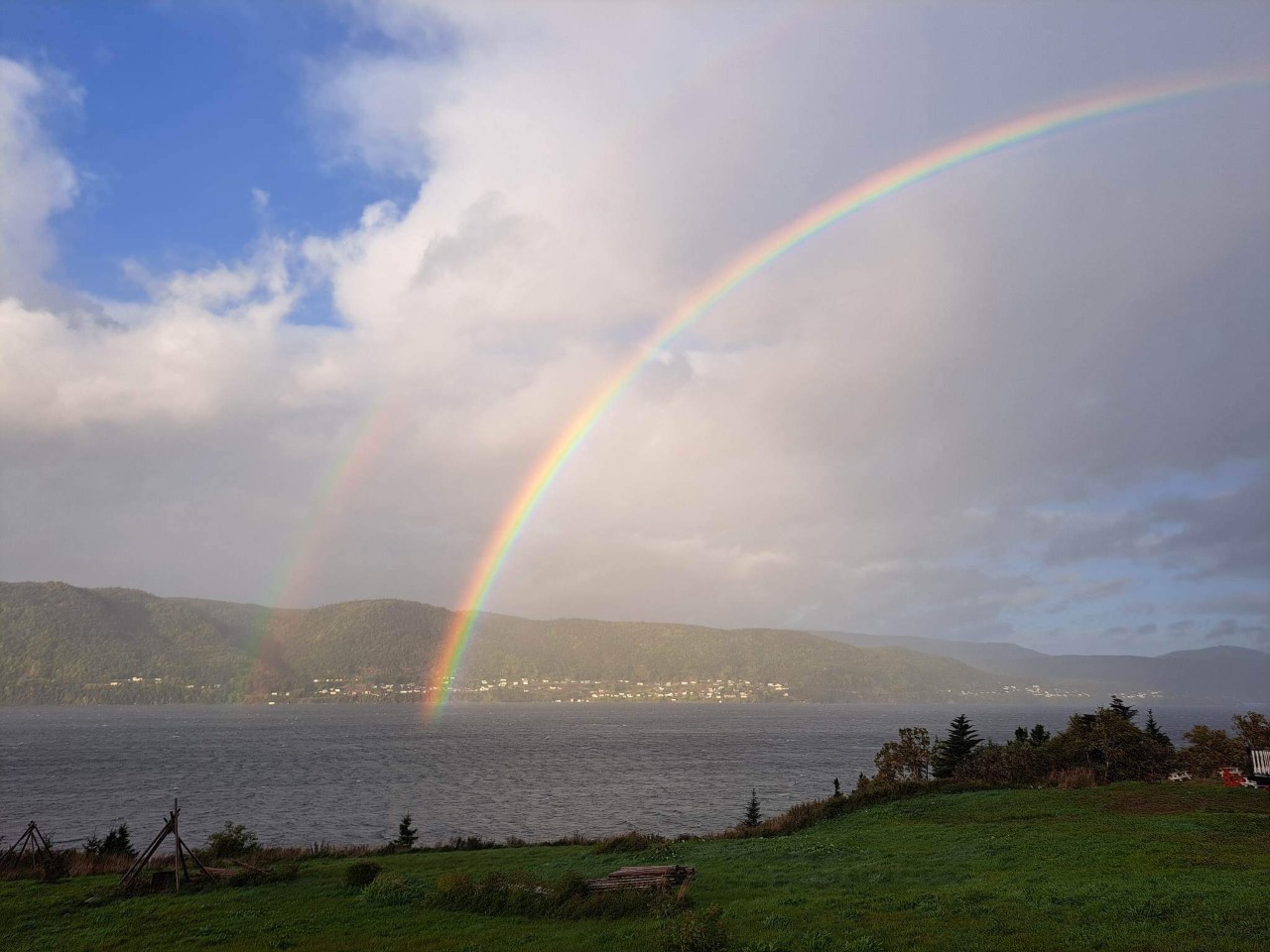Supporting the Journeys and Inquiries of Students

A first-person reflection of working on the MBI project
Photo Source: Cashen, T. (2022). View of a rainbow over the Bay of Islands from Meadows.
My name is Tara, I am an undergraduate student at Grenfell. I started working with the Marine Biomass Innovation Project Work Package 1 in the Fall of 2022. I was drawn to this project for its embrace of Etuaptmumk (Two-Eyed Seeing), and by a curiosity about how this principle can guide a diversity of researchers in a vast region. I am also a strong believer that waste is an unused resource limited only by creativity, and as such, I was thrilled to see innovative community solutions breathing life into the project.
My most influential teachings and relations come from mainland Mi’kma’ki, and I am fortunate enough to have traveled throughout this homeland learning from incredible stewards of these lands, as well as from the lands and waters themselves. By the grace of neighbors, peers, mentors, Elders, and certainly my own mother, value for multiplicity and seeing things from another perspective became engrained in my world. This is one way of portraying Etuaptmumk, an inherently collaborative process that can animate a mosaic of knowledges. Etuaptmumk was coined and shared with the world by Elders Albert and Murdena Marshall of Eskasoni. In Mi’kmak’i, seeing with two eyes incurs value for traditional Mi’kmaq management that has been practiced and tended for generations, called Netukulimk. I was taught that the benefits of Etuaptmumk are inseparable from the practice of Netukulimk, which understands the responsibility of living in an interconnected world. Netukulimk guides us on how to learn, be, and behave in relationship. It is the re-entangling of benefit and natural abundance with responsibility and sacrifice. It is reciprocity. Put this way, I can imagine many people from across Western Newfoundland seeing themselves, their homes, and their ancestors reflected in this practice, as self-sufficiency and intimate connection to the natural world mark these lands and waters.
Since beginning with the MBI project, I have felt supported to explore how these principles relate to lands less known to me and how they flower into a strength-based lens through which we can see the world. Working with Work Package Team 1, I have been taking inventory of community strengths and threats to those strengths outlined in existing documents from across the region. Looking for strengths first is important for deriving solutions and sets a positive outlook on the places we call home. The project has helped me to see the ways in which strengths can be spread to address challenges, or how abundance can meet deficit in the middle. We all inherit intergenerational strengths and weaknesses, blessings and traumas, and Netukulimk can help us re-entangle them as necessarily connected. The support I received from people on the project was their embodiment of the strength-based approach they sought. By playing to my strengths and validating my experiences, they prompted me to engage more deeply.
With the emergence of Western scientific transdisciplinarity as well as increased interest in Etuaptmumk, there is more invitation than ever to co-produce knowledge and solutions. Guided by Etuaptmumk and Netukulimk, a strength-based approach can enable the project to investigate the nuance of local contexts and be responsive to place. Woven throughout these collaborative processes is the invitation I answered, for students to shape and be shaped by the project. Let us continue to engage in reciprocal relationships, between students and employers, between researchers and communities, and between humans and the natural world.
Please note that this depiction of the Mi’kmaq principles Etuaptmumk and Netukulimk is my own interpretation. I would like to thank the generous people from which these interpretations arose while taking full responsibility for any missteps.
